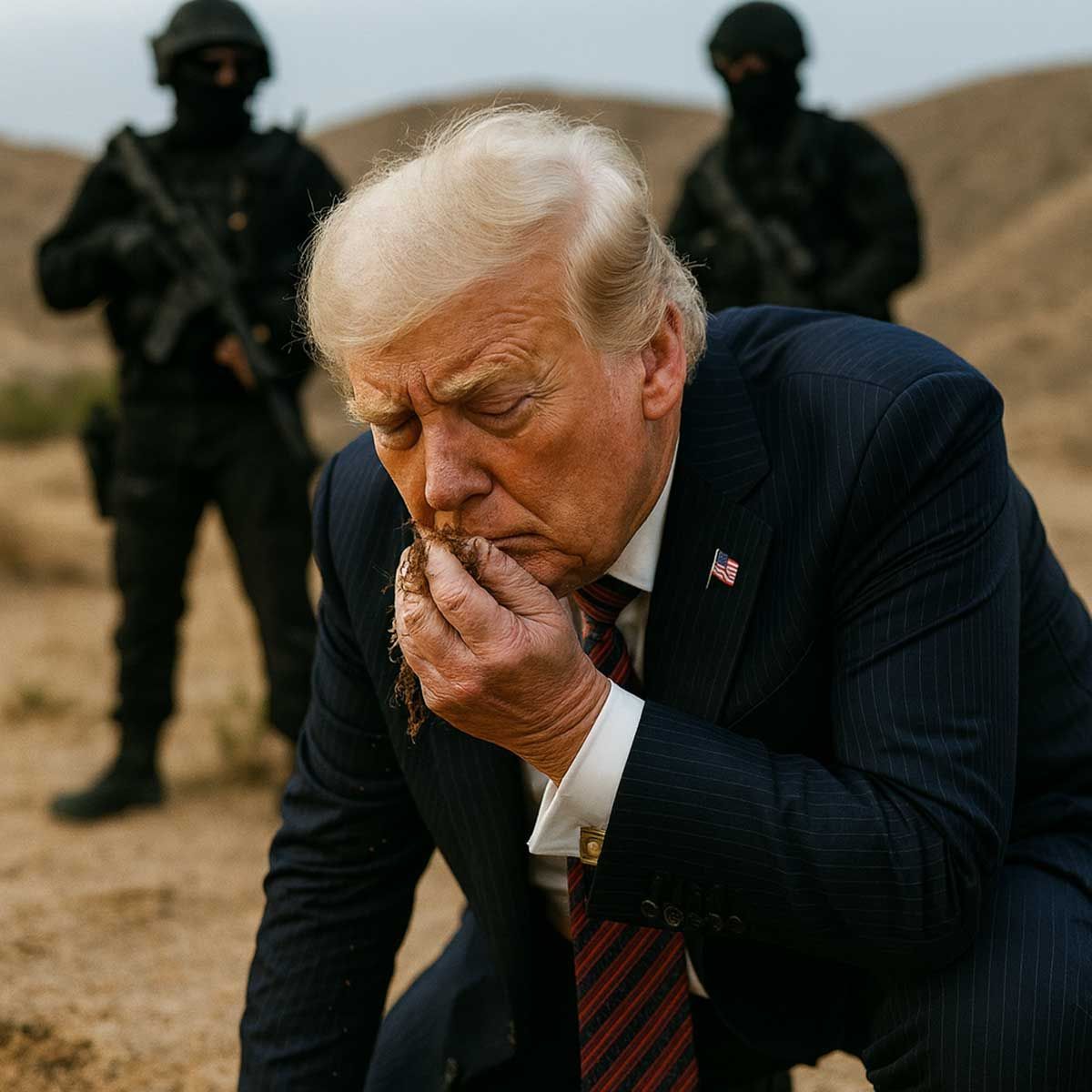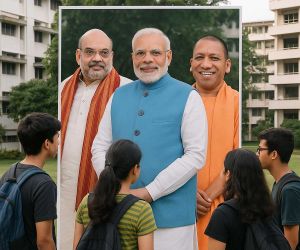MORE COVERAGE
Twitter Coverage
Satyaagrah
Written on
Satyaagrah
Written on
Satyaagrah
Written on
Satyaagrah
Written on
Satyaagrah
Written on
JOIN SATYAAGRAH SOCIAL MEDIA
Days after lusting over Pakistan’s massive oil reserves, the US brands BLA & Majeed Brigade as terrorists, stoking fears that resource-rich, long-oppressed Balochistan will be dragged into another bloody chapter of Washington’s greed-fueled war playbook

On 11th August (local time), the United States officially placed the Balochistan Liberation Army (BLA) and its fidayeen wing, the Majeed Brigade, on the list of Specially Designated Global Terrorists (SDGTs) under an Executive Order. This move mirrors the decision Washington took in 2019 and blocks any assets the groups may have in U.S. jurisdiction while prohibiting American citizens or companies from engaging in transactions with them (U.S. Federal Register).
The BLA operates in Balochistan, a province rich in resources yet among the most neglected in Pakistan. The group says its struggle is for Baloch self-determination, targeting Pakistani military forces and Chinese personnel involved in Beijing’s economic projects. Locals accuse Pakistan and China of exploiting Balochistan’s resources without providing benefits to its people (Dawn).
The Majeed Brigade—the BLA’s elite unit—was behind a recent train hijacking. The BLA has conducted military campaigns in Gwadar, Karachi, and other parts of Balochistan, calling these actions “resistance against external control and economic marginalisation.”
Baloch groups strongly oppose the U.S. designation, stressing that “the BLA is not a terrorist organisation” and that “Balochistan is a nation that has endured 78 years of state violence, economic exploitation, and even radioactive poisoning from Pakistan’s nuclear tests.” They accuse Islamabad of using extremist groups like IS-Khurasan to crush peaceful political voices. They also point out that the Baloch have never targeted U.S. forces, even during the Soviet–Afghan war and post-9/11 NATO operations.
|
Trump Strikes Oil Deal with Pakistan Amid Rising Regional Tensions
In a move seen by many as strategic rather than coincidental, U.S. President Donald Trump announced a new trade agreement with Islamabad to develop Pakistan’s “massive oil reserves.” This came just hours after he imposed a 25% tariff and additional penalties on Indian imports.
Trump even suggested that Pakistan might eventually sell oil to India. On Truth Social, he posted: “We have just concluded a Deal with the Country of Pakistan, whereby Pakistan and the United States will work together on developing their massive Oil Reserves… Who knows, maybe they’ll be selling Oil to India some day!”
While no timelines or corporate partners were disclosed, the statement signalled deeper U.S. interest in Pakistan’s energy sector. Given that most of the country’s proven and potential oil and gas reserves are located in Balochistan, the deal has stirred political debate over whether Washington’s involvement could further entrench foreign exploitation in a province already drained by Pakistan and China.
 |
| Source: Truth Social |
Balochistan’s Wealth: Rich in Resources, Poor in Justice
Balochistan is widely considered Pakistan’s most resource-rich province, yet it remains the most underdeveloped and marginalised. The region holds vast reserves of coal, chromite, barites, sulfur, marble, iron ore, quartzite, limestone, and world-class copper and gold deposits.
In Chaghi district, there are sulfur deposits at Koh-e-Sultan, vast marble fields near the Iranian border, high-grade onyx, and an estimated 30 million tons of iron ore. Khuzdar contains Pakistan’s largest barytes reserve at over 2 million tons, while the chromite mines in Muslimbagh and Lasbela account for over 80% of the country’s production.
Energy reserves are equally impressive. The Sui Gas Field, discovered in 1952, still produces around 300 million standard cubic feet per day. The Saindak Copper-Gold Project yields more than seven tons of processed metal annually, and the Reko Diq deposit is estimated to contain 5.9 billion tons of ore with copper and over 41 million ounces of gold (Geological Survey of Pakistan).
Beyond fossil fuels, Balochistan has the potential to become a renewable energy hub, thanks to high solar radiation and strong wind corridors. Yet, despite this wealth, decades of discriminatory policies from Islamabad have left the people of Balochistan in poverty. The ongoing resistance is rooted in this systemic exploitation—where riches are extracted from the land, but the local population remains excluded from its benefits.
|
Balochistan’s Struggle for Freedom: A History Written in Resistance
Amid renewed military tensions between India and Pakistan following the Pahalgam terrorist attack, the Baloch Liberation Army (BLA) has once again called for complete independence from Islamabad. The group has urged the United Nations to recognise what it calls the Democratic Republic of Balochistan. The province, home to the Baloch ethnic group for centuries, carries a long history of armed resistance against central Pakistani rule.
Historically, Balochistan was an independent entity under the Khan of Kalat. When the British left India in 1947, a Standstill Agreement was signed on 11th August, recognising Kalat as an independent state under British supervision. However, in March 1948, Pakistan coerced the Khan of Kalat into signing an instrument of accession against his will and the wishes of the Baloch people. That forced merger marked the beginning of a tense and violent relationship with the Pakistani state.
Since 1948, Balochistan has endured five major insurgencies—in 1948, 1958, 1962, 1973–77, and the ongoing conflict that began in the early 2000s. The grievances have remained constant: political marginalisation, plunder of natural resources, and a systematic campaign of violent suppression.
One of the most brutal chapters began in 2009 with the “Kill and Dump” policy, under which countless Baloch activists, leaders, and sympathisers were abducted, tortured, and killed. Today, the BLA remains at the forefront of the freedom struggle, refusing to be silenced despite Islamabad’s relentless efforts to crush it.
Pakistan’s “India Card” and How U.S. Actions Strengthen It
For decades, Islamabad has framed the Baloch insurgency as an Indian conspiracy. This narrative resurfaced again in summer 2025. After a deadly school bus blast in Khuzdar in May 2025, Pakistani officials publicly alleged Indian involvement. New Delhi rejected these claims as “baseless” and an attempt to “hoodwink the world.”
Pakistan’s Army Chief, Asim Munir, has repeatedly claimed that India’s RAW intelligence agency is behind the violence in Balochistan, even as attacks on railways, military convoys, and security outposts have escalated. Indian analysts see this as a familiar script, while India continues to dismiss such accusations as diversionary rhetoric.
This blame game is not new. In June 2020, then-Prime Minister Imran Khan accused India of orchestrating the Karachi Stock Exchange attack, a strike officials said carried the signature of the BLA. Pakistani police also pushed the India link in the 2018 Chinese consulate attack in Karachi. India condemned both incidents and denied any involvement.
Even routine security steps are shaped through this lens. On 8th August 2025, Pakistan suspended mobile data services across Balochistan, again citing BLA activity with Indian backing.
The timing matters. Washington has just reinforced its stance by moving the BLA onto the Foreign Terrorist Organisation list and updating its aliases. This hands Islamabad a powerful talking point in the global arena. Meanwhile, Trump’s push for U.S.-Pakistan cooperation to tap “massive” oil reserves gives an additional political boost to Islamabad’s framing.
The combination of fresh U.S. terror designations and Trump’s oil ambitions risks giving Pakistan more space to promote its India-centric narrative internationally—while diverting attention from the genuine political and human rights issues in Balochistan.
Balochistan: Could It Become the Next U.S. War Zone?
As U.S.-Pakistan cooperation deepens, particularly over oil and energy projects that touch directly on Balochistan, a critical question emerges—could this volatile province become the next front in Washington’s global conflicts after Ukraine, Iran, Iraq, and Syria?
India has consistently rejected Pakistan’s portrayal of Baloch unrest as foreign-sponsored. Yet, the changing U.S.-Pakistan dynamic could unwittingly lend legitimacy to Islamabad’s claims. Far from bringing stability, American entry into Balochistan’s resource sector could fuel further militarisation, deepen violence, and intensify the ongoing repression of its people.
Baloch leaders are sounding the alarm. Mir Yar Baloch, a prominent figure, recently wrote directly to Trump, warning that Pakistan had misrepresented the location of valuable oil, gas, and mineral reserves. He insisted these resources are located in “the Republic of Balochistan”—not in Pakistan proper—and cautioned that the resource deal could empower Pakistan’s intelligence apparatus to tighten its grip on the province.
Trump’s energy deal is not only a challenge to India but also to China, already heavily involved in exploiting Balochistan’s resources through the China–Pakistan Economic Corridor (CPEC). There is a growing possibility that U.S. policy could become entangled in Balochistan’s insurgency, turning it into yet another geopolitical flashpoint.
As history shows, once Washington steps into such theatres—be it Eastern Europe, the Middle East, or now possibly Balochistan—the people of the region are rarely the ones who benefit. Unless the aspirations and voices of the Baloch themselves are acknowledged, the province may be heading towards another chapter of foreign-driven conflict.
 Support Us
Support Us
Satyagraha was born from the heart of our land, with an undying aim to unveil the true essence of Bharat. It seeks to illuminate the hidden tales of our valiant freedom fighters and the rich chronicles that haven't yet sung their complete melody in the mainstream.
While platforms like NDTV and 'The Wire' effortlessly garner funds under the banner of safeguarding democracy, we at Satyagraha walk a different path. Our strength and resonance come from you. In this journey to weave a stronger Bharat, every little contribution amplifies our voice. Let's come together, contribute as you can, and champion the true spirit of our nation.
 |  |  |
| ICICI Bank of Satyaagrah | Razorpay Bank of Satyaagrah | PayPal Bank of Satyaagrah - For International Payments |
If all above doesn't work, then try the LINK below:
Please share the article on other platforms
DISCLAIMER: The author is solely responsible for the views expressed in this article. The author carries the responsibility for citing and/or licensing of images utilized within the text. The website also frequently uses non-commercial images for representational purposes only in line with the article. We are not responsible for the authenticity of such images. If some images have a copyright issue, we request the person/entity to contact us at This email address is being protected from spambots. You need JavaScript enabled to view it. and we will take the necessary actions to resolve the issue.
Related Articles
- Trump softens tone after SCO Summit in a climbdown, admitting need for India-US talks on trade, while PM Modi stands tall expressing confidence in partnership’s future
- Edward Price urged Donald Trump to scrap 50% tariffs and apologise to India, praised PM Modi’s smart diplomacy, while Putin in Beijing declared the colonial era over and warned the US cannot dictate to sovereign powers like India and China
- Who is this fearless daughter of Balochistan whose voice shakes power—Mahrang Baloch, jailed yet unbroken, led a 1,600-km march, earned TIME100, Nobel nod, and rose as the face of peaceful resistance against enforced disappearances in Pakistan
- Trump said he is “very angry” at Ukraine for bombing the Druzhba pipeline, which halted Russian oil to Hungary and Slovakia, as Orbán warned the EU that such strikes threaten Central Europe’s energy security and risk wider conflict
- 'In Trump I Trust': Donald Trump's Mar-a-Lago home raided, horde of angry supporters descends there in the hours following shock FBI raid of ex-president's Florida club, investigation focused on material that Trump took with him while leaving White House
- Donald Trump admits 50% tariffs hurt India and strained ties with Modi, yet urges G7 and China to follow, bragging of solving wars in a spectacle that mocks his own credibility
- Days after Donald Trump denied penning a 2003 birthday note to Jeffrey Epstein, Democrats exposed the alleged letter, igniting fury, lawsuits, and damning suspicions
- "Milei's Might, Argentina Veers Right": Javier Milei, echoing Trump secures a decisive 56% in Argentina's presidential election, outpacing leftist opponent, his campaign, marked by aggressive anti-left rhetoric signals a major political shift in Argentina
- US ramps up tariffs as Trump, Fitzpatrick and Graham push penalties over Russian oil, yet Modi and Jaishankar defy Washington, vowing India won’t bow to Western hegemony
- Just before PM Modi lands in Tokyo to meet Shigeru Ishiba, Japan shocks Washington by scrapping $550B trade talks, leaving Trump’s tariff deal in tatters and casting doubt on his boastful triumph as Xi Jinping awaits Modi at China’s SCO Summit
- "गज़ब्बे है": Another assassination attempt on Donald Trump at his Florida golf club, with shooter Ryan Routh, a Democrat supporter who donated 19 times since 2019, targeting Trump with an AK-47; Routh also supported Tulsi Gabbard, now a Trump ally
- Is Trump delusional or just misled by his own staff, as he keeps claiming he used ‘trade’ to stop India’s Operation Sindoor without a single deal to show, while India denies any talks, continues striking terrorists, and quietly exposes his every lie
- Peter Navarro erupted in a furious meltdown over Modi joining Xi Jinping and Vladimir Putin at the SCO summit in Tianjin, blasting India’s Russian oil trade, even as Trump’s own hollow Alaska meeting with Putin exposed America’s double standards
- Peter Navarro’s Brahmin profiteer rant echoed Rahul Gandhi’s caste census script, exposing how US deep state and Congress plot align, turning Modi’s SCO ties with Putin and Xi into a weapon of anti-Brahmin hate while America profits from Ukraine war
- "The nation which forgets its defenders will be itself forgotten": A nation is in trouble when its security services are raiding the home of an Ex-President, Mar-a-Lago raid over a dispute about missing official docs is a dangerous moment for America

























